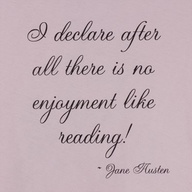Peak Reading Experiences of 2012
Last year I posted a list of the most interesting new books I’d read during 2011. With one or two exceptions, I focused that time on brand-new works by unknown writers. Many such writers continue to deserve every break they (we) can get. However, I’ve also been reading plenty of authors who are well-established or even famous. Usually, doing so reveals the reasons for their success, and that’s instructive. Therefore, my list for 2012 includes several who need no introduction as well as a few who’ve yet to be noticed (and with less concern for the date of publication). For expanded reviews, click the titles.
By the way, just a reminder: Books make excellent gifts.
The big news about Roth is his recent decision to write no more. Fortunately, he has produced more than enough edifying prose to keep readers busy well into the future. I worried that this memoir about his father’s declining years might be depressing. (Some readers have been hesitant about tackling my story for the same reason.) But in life, trouble comes to us all, and the interesting thing is the human response–whether it makes sense, whether the people responding are recognizable, whether there’s a takeaway. For me, the takeaway of Patrimony is that despite all the suffering involved, death and loss can be endured and more than endured. In a way, they can even be a way of defining and appreciating life.
Because of my background I’m a sucker for both nonfiction and fiction on the subject of medicine. That goes double when a disabled child is involved. But aside from this novel’s specific appeal to me, it should make good reading for anyone. The writing is exceptionally good. The dialog is perfect.
Our Lady of the Forest, David Guterson
This story revolves around a character who is a vital presence at the outset, with disturbing memories, and then, as she is seen more and more from the perspective of others, gradually becomes objectified. When Guterson’s characters speak, the dialog is wonderful. Our Lady should be read aloud. The story should be enacted. To me, it feels almost more real than actual life.
This novel gets an A+ for convincing characters and dialog and–especially appreciated–for a wonderfully unique story idea (to which I cannot do justice in the space available here). The main drawback is that, having finished, I found it sad to think how many more books I’d have to read before finding another as enjoyable. Quite likely her Remix, which is in my queue, will provide a fix…
What I like best and especially recognize here is Amanda’s ever-renewing hope that all her efforts will finally be rewarded. At first, the reader can see it coming: She thinks this month she’ll finally become pregnant, and we know she won’t. Later, her success seems so inevitable that I at least thought the story was basically over. But no, it’s not that simple, either in life or in good fiction. That part is particularly well handled.
Goodbye for Now, Laurie Frankel
Inspired by the grief his girlfriend feels for her recently-deceased grandmother, a software engineer applies his rare talents to the challenge of dynamic video chats and emails with the dead. This turns out to be possible because of all the digital data people leave behind nowadays in the form of Facebook posts, emails, photos and video, etc. As one of his partners in the enterprise cleverly observes, “You are what you tweet.” The story is a serious effort to explore questions like the nature of consciousness and the correct response to death and sorrow.
This novel shows how modern life is robbing our lives of meaning, or even reality, until we are in danger of reenacting Plato’s allegory of the cave. If that message sounds overly didactic, it’s softened by the human warmth in the relationships between the four principal characters–five, if we include their dog, as we should. It’s great writing. But I wish the author had inserted paragraph breaks and used conventional punctuation.
The Girl Who Tweaked Two Lion’s Tails, Pierre Van Rooyen
This is a riveting story that kept me up late at night. Further, I’m confident that in the right hands it could be made into a blockbuster movie. It has the feel of being based on actual people and/or events. But maybe that’s due only to the way the story is presented.
The variety from one story in this collection to the next is refreshing, but what they mostly have in common is depiction of a society that could plausibly be in the future for ours. Perhaps a future that’s uncomfortably close. The prospect of stepping into it in our own lifetime may have been the author’s motivation for writing. That is to say, these are cautionary tales.
The justification for any government’s existence is to enable its people to have more abundant lives. Any government, any leader, will miss that mark when it recognizes no authority beyond its own lust for power. Then, like the Kim regime, it begins lying to its citizens and demonizing and then persecuting those who might stand in its way. I believe it’s vitally important to acknowledge the effects of this very extreme example. My heart breaks for the multitudes still living the life Shin escaped. And I pray that my own country doesn’t move further in that direction.
Tags:
